The Buffalo Sabres may not need Lindy Ruff, specifically, back as head coach. However, he must have done something right to have held the job for 16 years up until 2013. There may be something to that.
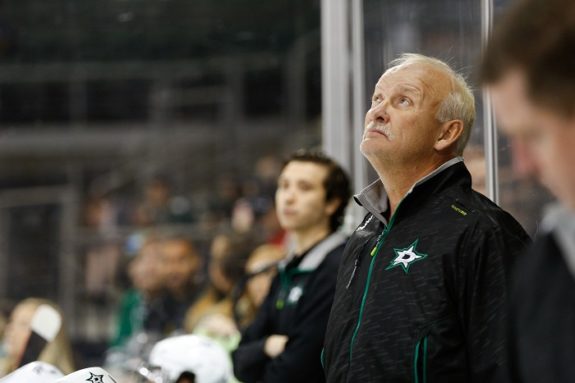
In fact, Ruff wasn’t just the longest-tenured head coach in Sabres history. He was also maybe the most successful, which is no small feat, seeing as the Sabres employed the services of Scotty Bowman, the head coach with the most wins in NHL history… technically on three separate occasions.
Ruff vs. Bowman
Serving as the team’s general manager from 1979-86, Bowman indeed doubled as the team’s head coach officially three different times. Of course, he reportedly had a tendency to micro-manage and never was able to let go completely. Based on a column by Jay Greenberg, that was arguably his downfall (from ‘How Buffalo Shuffle Beat Scotty Bowman’. The Chicago Tribune – 1/18/87).
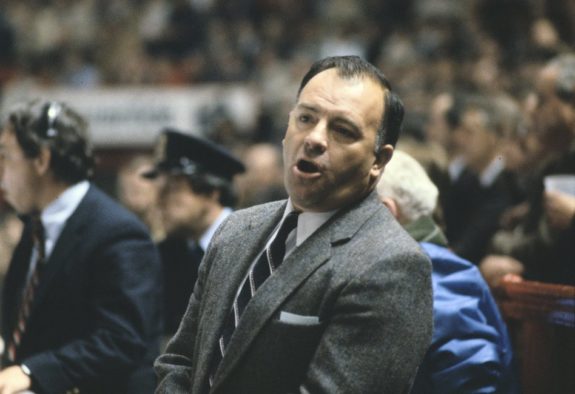
It’s as if no one could live up to Bowman’s standards as he let the likes of Roger Neilsen, Jimmy Roberts and Jim Schoenfeld slip away. Each of them head-coached the Sabres during single seasons before Bowman inevitably returned behind the bench.
To be fair, Bowman’s standards were high, but he did compile an overall record of 192-124-53 during his three stints as Sabres head coach for a reason. It amounts to a relatively impressive .520 winning percentage (considering the Sabres long history of success and all).
Ruff’s .560 points percentage (571-432-162) has him and most significantly every other Sabres coach since Bowman beat (admittedly in part due to the point won for overtime, shootouts losses). It’s nonetheless an impressive factoid, because there have been so many other coaches, which is in large part why the Sabres are in their current predicament, stewing in mediocrity.
Ultimately, if Bowman can get fired by the Sabres, anyone, including Ruff, can. Granted, Bowman officially got fired as general manager (from ‘Scotty Bowman, who had removed himself as…’ The Los Angeles Times – 12/3/86), but it was a single month after he had willingly stepped down as head coach for the final time, acknowledging it hadn’t been working. In other words, the axe was almost unavoidable.
Ruff’s Sometimes-Rough Sabres Tenure
The same goes for Ruff. Despite having earned the Jack Adams Award (2006) and compiled over 100 playoff appearances with the Sabres, with a winning record (57-44), he got fired in 2013 after failing to reach the second round in six seasons. An inability to make the playoffs at all the previous season and a slow start to that lockout-shortened campaign spelled the end of Ruff’s tenure, the longest in the NHL at the time.
There’s no denying the Sabres had failed to gain traction under Ruff for some time. Nevertheless, Ruff’s accomplishments are equally undeniable. He reached the Eastern Conference Final in his first season, one of four third-round appearances, including a Stanley Cup Final Berth in Year 2.
To this day, the six-game loss to the Dallas Stars in 1999 remains a sore point of contention for Sabres fans. Regardless of if you feel Brett Hull’s Stanley Cup-winning goal should have counted or not, consider that Ruff took a team that was co-led in scoring by defenseman Jason Woolley during the playoffs within one shot of Game 7 for hockey’s holy grail. Ruff didn’t fail in that regard. He exceeded expectations.
Sure, Ruff had the benefit of Dominik Hasek, but you still need to score more than your opponent to win. Hell, in some respects, Ruff enjoyed his greatest success with the Sabres after Hasek had moved on, even going on to beat his Ottawa Senators in the second round of the 2006 playoffs.
The Sabres ended up losing to the Carolina Hurricanes in seven games the following round, but the best regular season of Ruff’s tenure was yet to come with a 53-22-7 Presidents’ Trophy-winning 2006-07. It almost inevitably ended in disappointment as well, as the Senators, this time without Hasek, earned a measure of revenge, by beating the Sabres in the third round.
Hasek vs. Miller
Instead of Hasek, Ruff may have admittedly had Ryan Miller in net. However, Miller had not yet become the dominant force, as most have come to know him. He would only win his Vezina Trophy in 2009-10.
While an upstart Miller was no slouch and far from handicapped them, those Sabres were arguably the polar opposites of the Hasek-led teams that almost always made the playoffs by the skin of their collective teeth. At the time, Miller provided relatively no-name goaltending, and the Sabres got by primarily on their offense, highlighting Ruff’s versatility, even going on to lead the league in goals (298) in 2006-07.
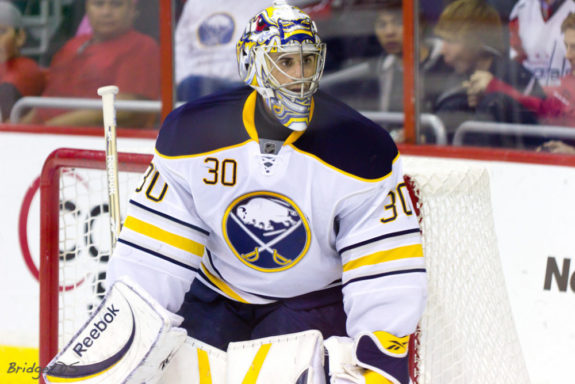
However, what often gets downplayed is how that offense was relatively no-name itself. In 2005-06, Maxim Afinogenov led the team in scoring with 73 points, the only 70-point season of his career. The top three was filled out by Chris Drury and Ales Kotalik, the latter of whom had never been a primary scoring threat before and never would be again.
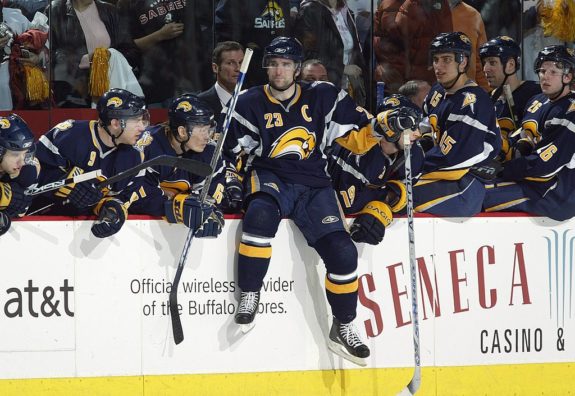
Drury was actually the only consistent presence in the top three in scoring those two seasons. Even he is better known as having been more of a clutch scorer than big scorer in his career. That and getting massively overpaid by the New York Rangers once he left the Sabres after 2007 along with top-scorer Daniel Briere, who joined the Philadelphia Flyers.
The point is, as a general rule, Ruff’s Sabres didn’t always have top stars. He nevertheless was able to get the most out of what he had, many times to impressive extents, as the Sabres ruled by committee on the scoresheet. Consequently, there was little doubt whose team it was. Even without Drury and Briere in 2007-08, the Sabres were respectable under Ruff, earning 90 points.
Granted, they missed the playoffs and did again in 2008-09 (91 points), but they bounced back in a big way. On the strength of Miller’s goaltending, they put together a 100-point Northeast Division-winning campaign in 2009-10, again getting led in scoring by the relatively unknown likes of Derek Roy and Tim Connolly, each of whom failed to sustain that same level of success past that season. So did Ruff. The Sabres got ousted in the first round those playoffs and exited early again in 2011, the last time they so much as reached the postseason under Ruff… or at all.
The Sabres’ Carousel of Coaches
Since Ruff got fired, the Sabres have gone through, no joke, five different coaches in a span of just seven full seasons. Newcomer Ralph Krueger’s underwhelming 30-31-8 record during his first far from instills confidence he won’t be the next sacrificial lamb. However, maybe they should give him more of a shot.
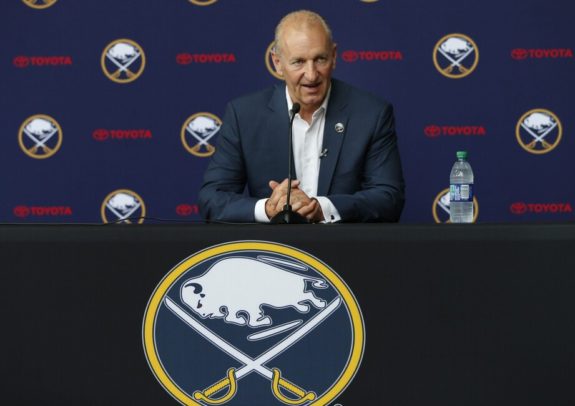
The closest the Sabres came to enjoying success post-Ruff, was under Dan Bylsma, when the Sabres finished seventh in the Atlantic Division with a 35-36-11 record in 2015-16. That speaks volumes on a number of levels, namely how Bylsma had found so much success coaching his Pittsburgh Penguins teams, but couldn’t on more of a modestly star-studded Sabres squad, even after Jack Eichel had been drafted.
To be fair, Eichel had been a rookie in 2015-16. However, if anything, the Sabres as a whole have regressed since that point, even as he’s developed into a legitimate Hart Trophy-caliber player. For the record, Hasek was the last Sabre to win the award, during Ruff’s first season. They last had a top-three “candidate” for the award the following season (Hasek again, at No. 3), for whatever that’s worth. Namely that Sabres coaches in general haven’t had that much help on the ice overall since, and Ruff has been the only one (again of six total coaches) to find success, regardless.
Ruff, who now serves as an assistant coach for the Rangers, likely isn’t the man for the job anymore, at least not with the Sabres. It’s what he represents that matters, the stability that has been lacking within the organization since his departure. That’s why Krueger should get more of a kick at the can.
Ruff arguably had to go when he did, but only after he had given it all he had by all accounts. That isn’t to say his successors haven’t, but it is that in so doing Ruff also got his players to do the same. As a result, for as rare as that’s become for the Sabres, that’s Ruff’s legacy. Not a Presidents’ Trophy and definitely not a controversial goal against, but how he got to each of those points. With Ruff, it was about the journey. And it was a long one.